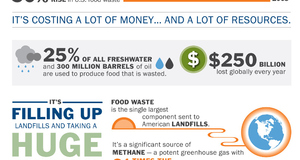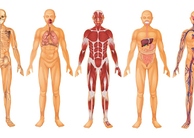Featured Opinion:Asceticism in the Modern World: The Religion of Self-Deprivation
By
2014, Vol. 6 No. 03 | pg. 4/4 | « Asceticism: a Place in Modernity?So what place, if any, does asceticism have in modernity? Does it take leaving the world behind to become spiritually enlightened? Does one need to encounter God to be a devoted ascetic? Whilst there has been a migration away from the ‘organized religion’, a startling number of individuals have sought enlightenment through food; dieting, eating disorders, vegetarianism. We have seen that yes, indeed, asceticism is still rife amongst the consuming community, now holding a more inclusive connotation than documented in antiquity; leaving the world behind is thankfully, unnecessary. It has a place. And a new-found form. Modernity has made asceticism its own: a hedonistic asceticism for the ‘every man’. And although God-induced asceticism is still in practice, faith isn’t a requirement. Even Christians are free to make their own rules regarding consumption, despite one of the most ancient food rules still existing at the liturgical centre: the Eucharist. The societies of our world cannot prevent asceticism from growing in popularity; but it depends on themselves whether the principle of abstinence is to lead them to servitude or freedom, to pain or enlightenment, to faith or to spirituality.ReferencesBordo, Susan. Unbearable Weight: Feminism, Western Culture, and the Body, 1st ed. California: University of California Press, 1993. Bynum, Caroline Walker. Holy Feast and Holy Fast: The Religious Significance of Food to Medieval Women. Berkeley: University of California Press, 1987. Grumett, David. “Food and Theology” from Ken Albala (ed), Routledge International Handbook of Food Studies (2013): 158-164. Kreml, Patricia. Slim for Him: Biblical Devotions on Diet. Netherlands: Logos International, 1978. Lelwica, Michelle Mary. Starving for Salvation: The Spiritual Dimensions of Eating Problems among American Girls and Women. New York: Oxford University Press, 1999. Lupton, Deborah. Food, the Body and the Self. London: SAGE Publication Ltd., 1996. MacKendrick, Karmen. Counterpleasures. New York: State University of New York Press, 1999. Shamblin, Gwen. Rise Above: God Can Set You Free From Your Weight Problems Forever. Nashville: Thomas Nelson Incorporated, 2000. Ascetic. Accessed November 13, 2013. Available from http://www.merriam-webster.com/dictionary/ascetic. Anorexia. Accessed October 9, 2013. Available from http://www.merriam-webster.com/dictionary/anorexic. The Compelling Spiritual Discipline of Asceticism. Accessed November 2, 2013. Available from http://www.huffingtonpost.com/norris-j-chumley-phd/the-value-of-asceticism t_b_806700.html. Endnotes1.) Ascetic (accessed November 13, 2013); available from http://www.merriam-webster.com/dictionary/ascetic. 2.) The Compelling Spiritual Discipline of Asceticism (accessed November 2, 2013); available from http://www.huffingtonpost.com/norris-j-chumley-phd/the-value-of-asceticism-t_b_806700.html. 3.) Anorexia (accessed October 9, 2013); available from http://www.merriam-webster.com/dictionary/anorexic. 4.) Susan Bordo, Unbearable Weight: Feminism, Western Culture, and the Body, 1st ed. (California: University of California Press, 1993), 12. 5.) Michelle Mary Lelwica, Starving for Salvation: The Spiritual Dimensions of Eating Problems among American Girls and Women (New York: Oxford University Press, 1999), 75. 6.) Caroline Walker Bynum, Holy Feast and Holy Fast: The Religious Significance of Food to Medieval Women (Berkeley: University of California Press, 1987), 197. 7.) Ibid., 203. 8.) Ibid., 204. 9.) Patricia Kreml, Slim for Him: Biblical Devotions on Diet (Netherlands: Logos International, 1978), 15. 10.) Gwen Shamblin, Rise Above: God Can Set You Free From Your Weight Problems Forever (Nashville: Thomas Nelson Incorporated, 2000), 11. 11.) Lelwica, 76. 12.) Ibid., 76. 13.) David Grumett, “Food and Theology” from Ken Albala (ed), Routledge International Handbook of Food Studies (2013): 162. 14.) Lelwica, 68. 15.) Deborah Lupton, Food, the Body and the Self (London: SAGE Publication Ltd., 1996), 142. 16.) Grumett, 164. 17.) Karmen MacKendrick, Counterpleasures (New York: State University of New York Press, 1999), 65. 18.) Ibid., 81. Suggested Reading from Inquiries Journal
Inquiries Journal provides undergraduate and graduate students around the world a platform for the wide dissemination of academic work over a range of core disciplines. Representing the work of students from hundreds of institutions around the globe, Inquiries Journal's large database of academic articles is completely free. Learn more | Blog | Submit Latest in Opinion |
















